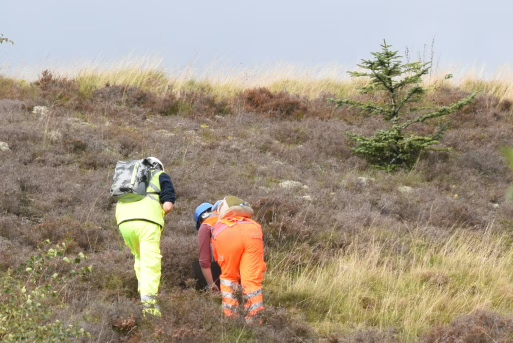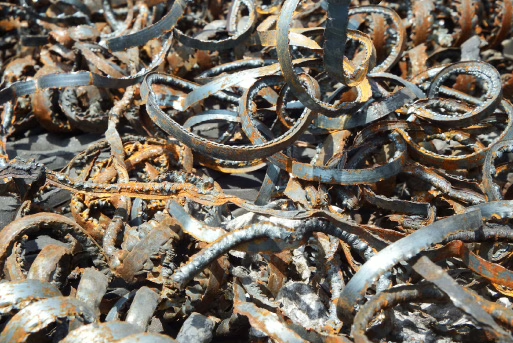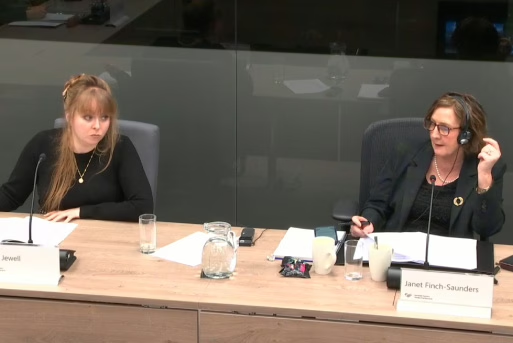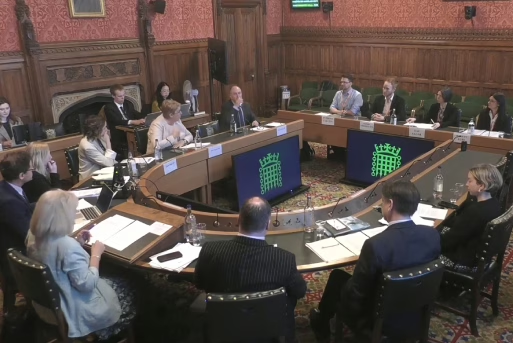
Lloyd’s of London Chairman, Bruce Carnegie-Brown, has allegedly offered an ‘olive branch to eco-activists’ – as reported in The Insurer this week. Having listened to his comments, we’re not so sure – and we certainly won’t be placated until the insurance industry’s actions start speaking louder than their words.
Industry publication The Insurer has released two clips from a recent panel discussion on climate issues with Carnegie-Brown and Canada’s former Conservative prime minister Stephen Harper, chaired by The Insurer’s managing editor, Peter Hastie.
The Insurer’s basis for claiming Carnegie-Brown offered climate activists an ‘olive branch', is based around their assertion that he states ‘eco activists were “clearly” needed’ to bring about change. The clip from the discussion, however, presents a different story. Instead, Bruce describes ‘eco-activists’ as ‘unreasonable people.’ What Carnegie-Brown actually says is ‘clearly’ needed is ‘some change in our perceptions about the impact of the way we behave in our everyday lives.’ This speaks to a desire of top polluters and their enablers, the key drivers of climate change, to push the responsibility onto individual behaviour – and away from themselves. It also implies our everyday lives are equal in their contributions to climate change. In reality, the richest 1% of the population are responsible for more than 15% of global emissions. As highlighted by the United Nations’ IPCC, we need change on a much larger scale in order to avoid the worst effects of climate change. This includes, regardless of existing construction, no new coal plants to be built or become active.
One of Carnegie-Brown’s main criticisms of the growing global movement putting pressure on insurers worldwide was the ‘tendency to be single issue based.’ Instead, he argues that climate change cannot get addressed on a case-by-case basis. We would be the first to agree with that! We need market-wide policy to effectively mitigate climate change. This is something we have been continually pressuring Lloyd’s to take – our first demand of them is an immediate phase out of the insurance of all coal and fossil fuels. Lloyd’s targets are woefully inadequate, and there has been no effort to report on whether members are fulfilling their own commitments, though we know from other sources that they are not. In this sense, the same case-by-case basis ‘strategy’ that Carnegie-Brown is so critical of is driven in part by Lloyd’s own inaction and lack of transparency.
It is frontline communities who bear the brutal impacts of these projects. Our actions stand in solidarity with those most affected by extraction. It’s misleading to caution, as Harper does during the panel, that ‘satisfying the activists in London when you decommission a power plant, but on the ground in some emerging economy it may be terrible.’ This sets up a false dichotomy – implying those ‘on the ground’ are not actively campaigning against extraction, when in fact all the insurance campaigns we work on are led by communities on the ground who are demanding better alternatives to fossil fuels. There are the disastrous risks to people on the ground from the projects that continue to be insured on the London market, such as forced displacement, water contamination, catastrophes such as failed tailings dams, extensive habitat and biodiversity loss.
The concern voiced by the panel on behalf of ‘people on the ground’ is therefore misdirected. It would be better directed by placing exclusions on the Lloyds marketplace which would see these disastrous projects turned away at the door. We highlight that we are continuing to demand the democratisation of the insurance industry to force a just transition for all.
Carnegie-Brown also speaks of the need for ‘common data’ to support sector wide action on climate change. Yet the data is already there. And it says this: there can be no new fossil fuel projects starting after 2021 if we are to stay within 1.5 degrees of warming. Instead, Carnegie-Brown suggests a reduction of carbon intensive activity that ‘reduces every year to get to net zero by 2050.’ This flies in the face of existing data – net-zero by 2050 is not enough. At a bare minimum, we need the insurance sector to be meeting the United Nations’ Race to Zero criteria. Given the availability of extensive scientific evidence, the panel’s calls for ‘data’ in order to act seem really to be calls for data that support their current position, rather than challenge them to change.
So, while The Insurer reports on this positively, characterising it as recognising the need for climate activists to bring about change, at most this amounts to greenwashing. In a telling comment, Stephen Harper advises the insurance industry in the discussion to ensure that they ‘have a story’ (read: PR) about moving in a positive direction – whilst ensuring that this story doesn’t harm their ‘bottom line.’ As ever, profits come first.
A ‘story’ is not enough. We need those who currently hold the power to act to keep fossil fuels in the ground, and support just climate solutions. Until then, it seems we will have to carry on being ‘unreasonable.’

On July 1st, 2025, CAN organised drop-in session at the Senedd, spotlighting the urgent need for action on Wales’ coal legacy issues. The event saw strong cross-party engagement, with Members of the Senedd (MSs) from Labour, Plaid Cymru, the Conservatives, and the Liberal Democrats in attendance…

We’re actively setting the record straight when fake news about coal is spread through public figures, social media, or the press. The rise of populist politics and politicians tend to drive statements that are don’t entirely match the evidence, but may win them some votes…

Explore the landscape via the images below, drag around the viewpoints and go full-screen for the immersive experience. This is what the 58,000 residents of Merthyr Tydfil face every day…and with a new plan by mining company, Merthyr (South Wales) Ltd, to evade its responsibility to restore…

This information seeks to clarify which tips are included in ERI Ltd’s proposal to mine and then flatten certain coal tips in Caerphilly. The tips selected appear to be on the basis of which would be most profitable to mine of the ‘waste coal’ they contain…

The Welsh Government’s Deputy First Minister, in his response to the CCEIC’s Stage 1 Report, admits the “Bill does not prevent the extraction or burning of coal” but adds “I cannot envisage a scenario in which the extraction and burning of coal will arise as a result of the Bill”…

The direct use of coal as a feedstock (not just energy) is particularly significant in China, where coal is used extensively in coal to gasification plants to produce chemicals such as methanol, ammonia, and…

This nature was photographed around 50 metres from the edge of the Glan Lash opencast coal mine in Ammanford, South Wales. It shows the thriving ecosystems surrounding the Glan Lash opencast coal mine which has remained dormant since 2019…

In February, CAN gave oral testimony to the Climate Change, Energy, and Infrastructure Committee (CCEIC) on the Disused Mine and Quarry Tips (Wales) Bill…

Coal Action Network was invited to attend Westminster where we gave evidence to the Welsh Affairs Committee in their inquiry about the environmental and economic legacy of Wales’ industrial past, alongside Friends of the Earth Cymru. This inquiry was opened in…